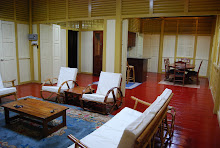The motorcar with its auto parts to learn and know. Learning to drive would require you to know how it works too. Helping you when there is a breakdown. No doubt quite often too
Do we ever learn about the motor engine now? We have complete trust and therefore why bother to know how it works.
THERE ARE MANY DRIVING SCHOOLS NOW. All guiding and teaching learners to ride the motor-cycles or to be at the wheels of lorries, buses and motorcars and pass with flying colors in quick time. Technologies and no doubt the schools with all the facilities have made learning to drive an easy accomplishment, just as in many other approaches too.
Recently, while rearranging my collection of books, I found " Odhams Motor Manual - How Your Car Works and How to Service it' a fourth edition copy printed in 1960, a hard cover book with 320 pages. Noted on the front page " Bought in Singapore 25 March 1961. The price (Ringgit) $ 9.00 This is one habit which I practiced even currently allowing me to trace through the years all the books that are in my collections and realizing when and where I bought them.
Pretty sure we do not refer to such signage now though a few may be standing still in many parts of the world
That reminded me that it was within that time that I took to driving. First a motorcycle and later the motor car. I got a 'D' licence for the former allowing me to ride a 500cc big bike and a B for the latter.I used to ride an BSA, a Triumph and a Norton.Not my own of course. While for the motorcars, the likes of Ford, Triumph, Rover, Austin, Morris, Worsley and VW would be familiar names.
It is to be reminded that driving in the 1960's and earlier is far different from what it is today. Now firstly the vehicles are modern with automatic facilities. Secondly the road signs , road conditions and traffic regulations are a far cry from what they were before.
MANUAL would be the order of the day. No automatic gears. Especially NO air conditioning. Road signs have to be given manually. You stretched out your arm if you want to turn left or right and giving the correct signal. When stopping, you held up your arm giving another version. .
How the arms give instructions when auto signals were not yet designed
The policeman on duty.Characteristically you would still obey his signals when he is on duty Notice however currently they are casual
Yes sorry no traffic lights. No red, orange or green. At main junctions you looked out for the policeman on duty. He would give directions.
Imagine when you had a traffic light failure now. Everybody rushes making a hell of a jam until a person or a traffic policeman comes to sort out waving his arms left and right. Traffic policemen are still trained to move vehicles when such situations occur.
Much as it would give me fine moments to remember the way we drive before, maybe you could look at the illustrations from the book I mentioned earlier and see the differences of then and now.
Most of us, road-users and not necessarily car owners would have to learn the basics of the cars. So such a book as above became a collection piece. We need to know about the vehicles especially the engine and other parts of the vehicle. It came down at weekends for us to open the car bonnets and look at the engine and do the servicing ourselves. Timing chain, carburetor, spark plugs,petrol pump, battery etc received our attentions. We were not machinists but circumstances made us learn the simple aspects of the engine and how it works.
At modern launching of brand new cars, you may notice some differences in the observation styles or techniques. While a great majority will get into the car, appreciate its interior, its dashboard and cozy feeling plus the sound system etc, there will be a small majority who would open the bonnet and look what's under it. This would normally be the seniors. They would also like to look the undersides of the vehicle too. Well what are your preferences? How do you choose your new car?
I am happy with what is in the 'stable' as it is reliable like the old horse.
Hoping this article triggers some past episodes.
Hoping this article triggers some past episodes.





















































